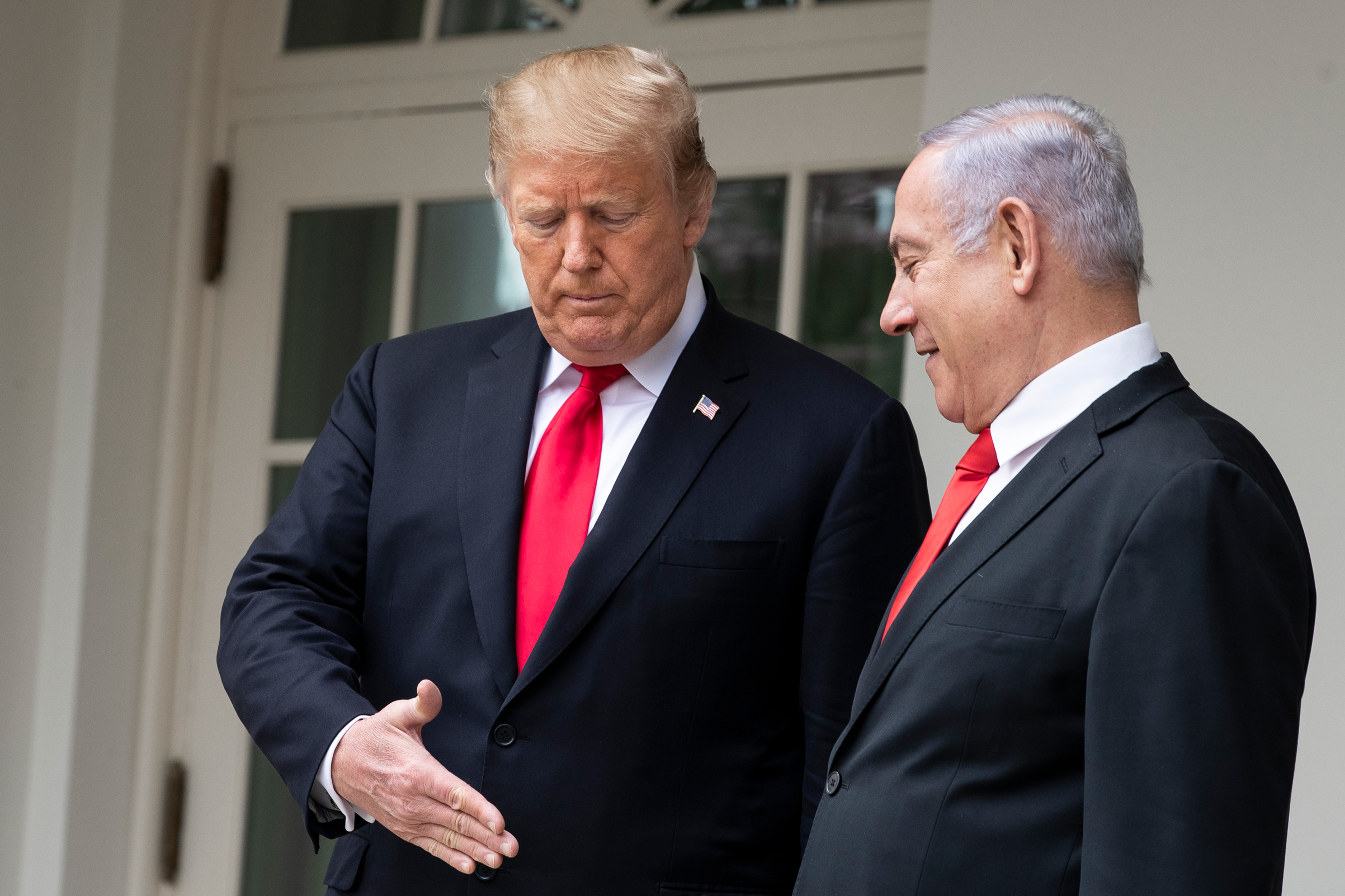As Israel wages war to destroy Hamas in Gaza while bracing for the possibility of a northern front with Hezbollah, the United States and its allies have become more aggressive in their efforts to impose a “two-state solution” on the country.
Walla cited two senior White House officials this week as revealing that US Secretary of State Anthony Blinken ordered the State Department to examine the possibility of Washington recognizing a Palestinian state in the West Bank and Gaza as soon as Israel’s war in Gaza winds down.
Following the report, journalists raised the subject with State Department spokesperson Mathew Miller, who confirmed that the US is engaged in ongoing “planning processes” on how best to divide the country into two separate states.
“We support the establishment of an independent Palestinian state, and we do a lot of work in the government to think about how to bring it about,” Miller said.
Miller stressed, however, that this does not signal any significant change in US policy.
British Foreign Secretary David Cameron made similar statements earlier this week, saying that his government is considering recognition of a Palestinian state in the West Bank.
“We and our allies are examining the issue of recognizing a Palestinian state,” Cameron said.
“This could be one of the things that will help make this process irreversible.”
It should come as no surprise to anyone that the desired outcome of the Western powers for Israel’s Gaza War is the immediate division of the country into two states. But recent talk of the US and Britain unilaterally recognizing a Palestinian state – a threat to de facto impose a “two-state solution” on the diplomatic plane – should be understood as a response to Israeli Prime Minister Binyamin Netanyahu (Likud) publicly rejecting international calls for partition and warning the Israeli public of the need to resist American efforts to impose a division of the country.
Netanyahu specifically rejected US President Joe Biden’s recent suggestion that he would eventually surrender to US demands and accept a two-state policy.
“I will not compromise on full Israeli security control over all the territory west of [the] Jordan [River] – and this runs contrary to a Palestinian state,” Netanyahu tweeted on X (formerly Twitter) on January 20.
It was the third time the prime minister had clarified his position in a 48 hour period marked by an increase in American pressure on the issue.
Earlier that day, Netanyahu’s office made clear that in the prime minister’s conversation with President Biden, he “reiterated the position he has consistently held for years.”
“After Hamas is eliminated, Israel must retain full security control of the Gaza Strip to ensure that Gaza won’t pose a threat to Israel, and this conflicts with the demand for Palestinian sovereignty,” the PMO stated, noting that Netanyahu had expressed this same position when he spoke to journalists on January 18 in Tel Aviv.
During that press conference, Netanyahu stated that “Those who speak of the day after Netanyahu are talking about the creation of a Palestinian state led by the Palestinian Authority.”
Netanyahu’s words came only a day after NBC News reported that Secretary Blinken had increased pressure on Israel’s leader, revealing growing frustration within the Biden administration regarding Netanyahu’s resistance to partition.
“We have today a profound regional opportunity in the Middle East that we did not have in the past,” Blinken said at the World Economic Forum in Davos.
“The challenge is to realize it.”
When asked if Prime Minister Netanyahu is the right Israeli leader to seize this opportunity, Blinken responded that “these are decisions that Israelis need to make.”
Senior US officials conveyed to NBC News that the Biden administration is looking beyond Netanyahu to achieve US objectives in the region.
“Netanyahu will not be there forever,” they said, hinting at American efforts to unseat Netanyahu (as Washington successfully did in 1999).
The US officials further stated that the Biden administration is attempting to lay the groundwork with other Israeli leaders in anticipation of a future post-Netanyahu government.
During Blinken’s visit to the region in mid January, Netanyahu outright rejected the proposal for a “two-state solution” and has since made clear to the Israeli public that he is committed to resisting American demands for partition.
Blinken reportedly held private meetings with National Unity party leaders Benny Gantz and Gadi Eisenkot – current members of Israel’s war cabinet but political rivals to Netanyahu. Blinken also met with other Israeli political figures, including opposition leader Yair Lapid (Yesh Atid).
National Unity has been soaring in the polls and if elections were held today, Gantz would likely form the next government. But this is only helpful to the Americans if Netanyahu’s government falls in the near future.
While Washington and its allies are more committed than ever to a “two-state solution” and clearly view Prime Minister Netanyahu as the primary obstacle to their plans, none of the Israeli politicians they would normally rely upon currently have the ability to take down Netanyahu’s coalition. Not Lapid, nor Gantz or Eisenkot, have the ability to bring Israel to national elections. What the Americans need is to create friction between Netanyahu and his coalition partners.
While some might assume that the Shas, Otzma Yehudit, Noam, Religious Zionism and United Torah Judaism factions have no current incentive to bring down the Likud-led government, the Americans can actually boast of past successes when it comes to creating pressures that antagonize contradictions between the Likud and its coalition partners.
Shas, Noam and UTJ have a relatively firm grasp on the political game but Otzma and RZ are led by figures who, while genuinely principled and rooted in their ideological commitments, are embarrassingly ignorant about how the system works and obviously clueless about the world outside Israel’s borders. This makes them a liability as they are vulnerable to unwittingly weakening Israel’s resistance to Washington by threatening to bring down Netanyahu.
Ministers Betzalel Smotrich (Religious Zionism) and Itamar Ben-Gvir (Otzma Yehudit) need to be especially careful not to allow minor issues that appear to them and their voters as the prime minister selling out to threaten the stability of the coalition.
Israel is currently in the midst of a war that could potentially spill out into several regional fronts while existing in a situation of complete dependency on the US for arms. While Israel should of course move towards military independence after this war in order to avoid this situation repeating itself in the future, Prime Minister Netanyahu under the current conditions may need to give in to at least some American demands.
It appears that Netanyahu is currently trying to avoid surrendering to US pressure on what he considers to be the large issues (partition or serious steps towards partition) while accommodating the Biden administration on smaller issues (humanitarian aid to Gaza). The Americans know that by pushing the prime minister on moves that he might consider less significant but are issues of principle for Smotrich and Ben-Gvir, they can antagonize contradictions between Netanyahu and his coalition partners.
The fact that Netanyahu’s ability to effectively resist US pressure for a “two-state solution” and avoid elections that could potentially bring Gantz to power as an American puppet leader is dependent on Smotrich and Ben-Gvir understanding the geo-political game doesn’t appear to bode well for the nation.
Let’s hope they surprise us.





